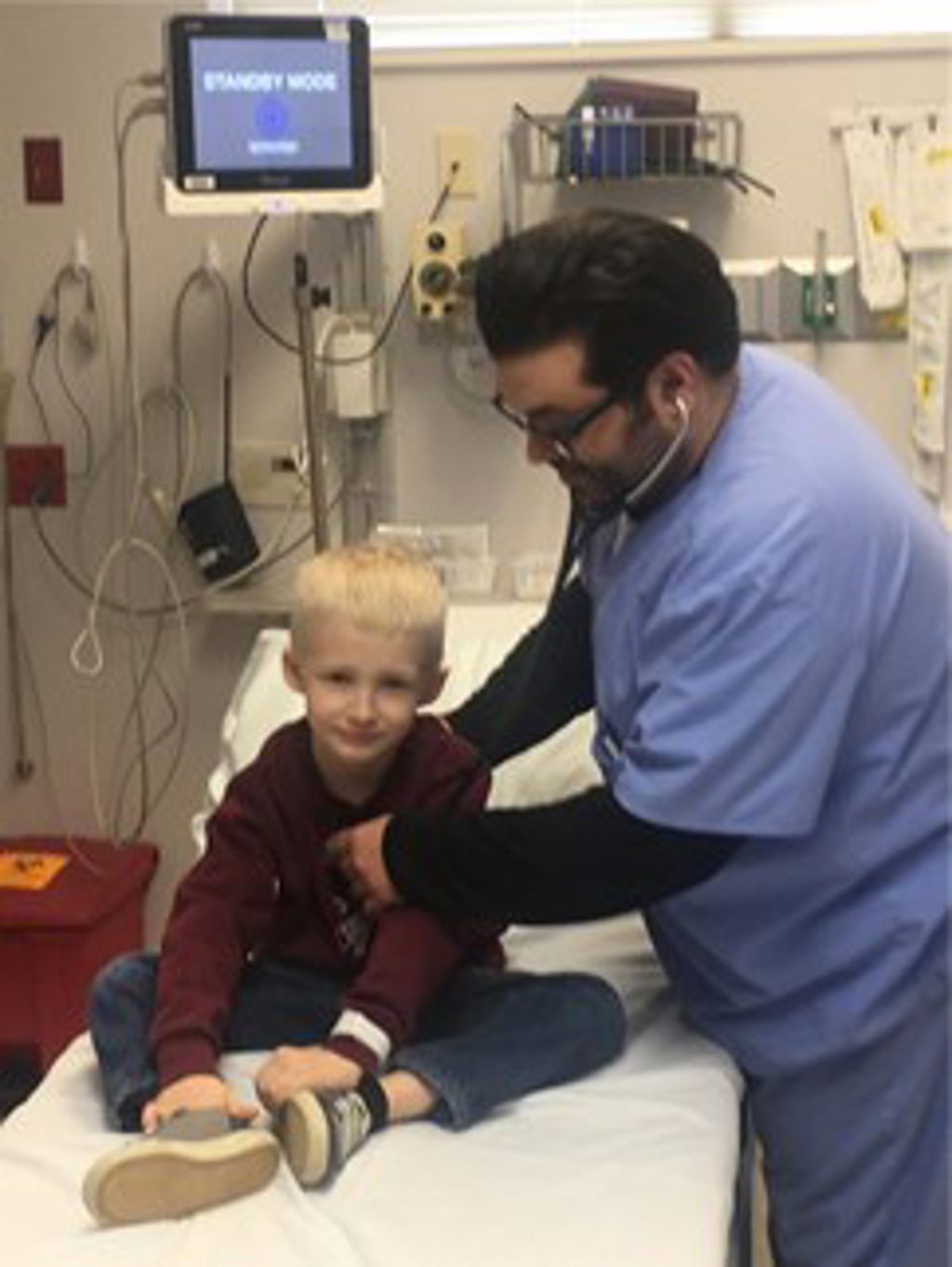
Organ Transplant Keeps Seth Going Strong
When patients see Seth Astorino, a nurse practitioner in the Emergency Department at Penn Highlands Elk, they may not know that he was once a sickly patient.
Thanks to a kidney transplant, he is back on the giving side of medical treatments.
Astorino was diagnosed with rapidly progressive glomerulonephritis caused by IgA Nephropathy in 2014. “It is an autoimmune disease that affects how the kidneys filter the blood. It usually affects young adults and often causes damage over decades,” he said. “Unfortunately, I had rare progressive type that caused complete failure of my kidneys in less than a year.”
He was no stranger to dialysis. “In my experience as an emergency nurse and nurse practitioner, I had cared for many patients that required dialysis. I certainly was not a stranger to medical problems. The driving force behind my decision to become a nurse was my previous diagnoses of cerebral palsy and Crohn’s disease,” he said. He had grown up around physicians, nurses and hospitals and despite these chronic issues, he was able to attend college and work without much interference.
“But when I was told I would need dialysis treatments three days a week and what the treatments involve, I was fearful that I could die, or be severely limited both professionally and personally,” he said.
Astorino was on dialysis for nearly eight months. “It is a brutal existence,” he explained. “Two large needles are inserted into the arm and for four hours my blood circulated through a filter. After treatments, I had headaches, fatigue and slept the majority of the time.”
Many of his family members stepped up to test to be a living organ donor. After rigorous testing, his aunt MaryLou Astorino of Johnstown, was found to be a match.
“On July 7, 2015, I received living-donor kidney transplant from my Aunt at the UPMC Montefiore hospital. It immediately began to function and I have been off dialysis since. My aunt recovered quickly after surgery and was released after only two days in the hospital,” he said.
“I cannot thank my aunt enough for what she has given back to me. She is my angel. My life before the transplant was alternating between a 12-hour shift in the Emergency Department and dialysis treatment days, with little time or energy for anything else,” he said.
Today, Astorino can care for his patients, travel, spend time with my family and keep up with his niece and nephew.
“The gift my aunt gave me is truly the gift of life. She is the most selfless and special person I know. We will always share a special bond. As a living donor, she not only saved my life, but the cadaver kidney I would have gotten, went to another patient on the list. In my eyes, she saved that person, too.”
“I encourage both living and deceased donation. The waitlist for organs is long and people are waiting for years for the chance to be well again.”
“As Seth’s aunt, I have watched him conquer each challenge that he has faced in life from his first few months in the NICU (neonatal intensive care unit) to his most recent challenge with kidney failure,” Debra Thomas, RN, chief nursing officer at Penn Highlands Brookville and the hospital’s liaison to CORE, the Center for Organ Donation and Recover.
“Our family has been so blessed to have a nephew that has given so much to others and that his equally giving Aunt MaryLou was able to give him his life back,” Thomas said. “Currently there are 118,000 mothers, fathers, sons, daughters, brothers, sisters, nieces and nephews waiting for an organ donation. Be someone’s hero and make the pledge for life and become an organ donor.”
